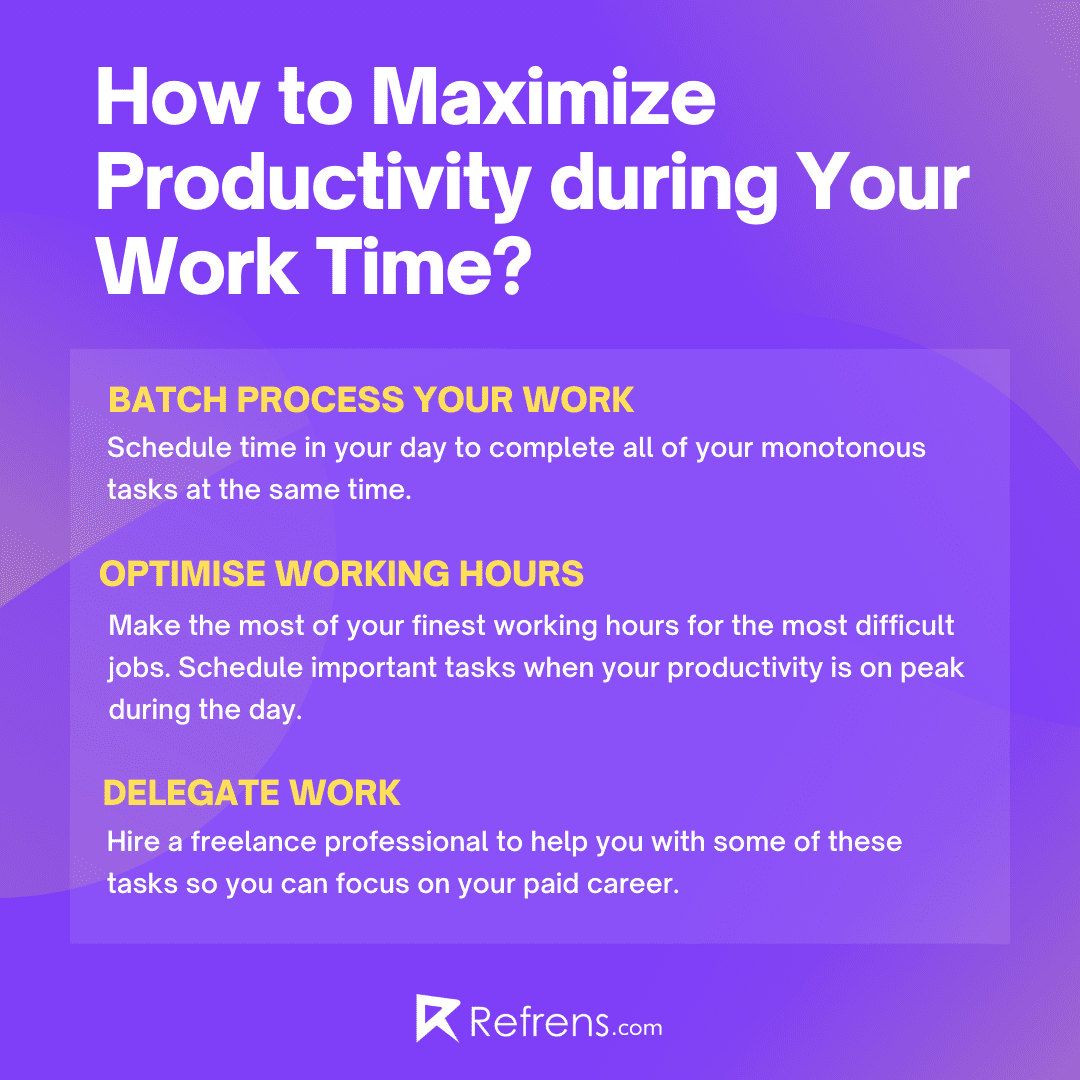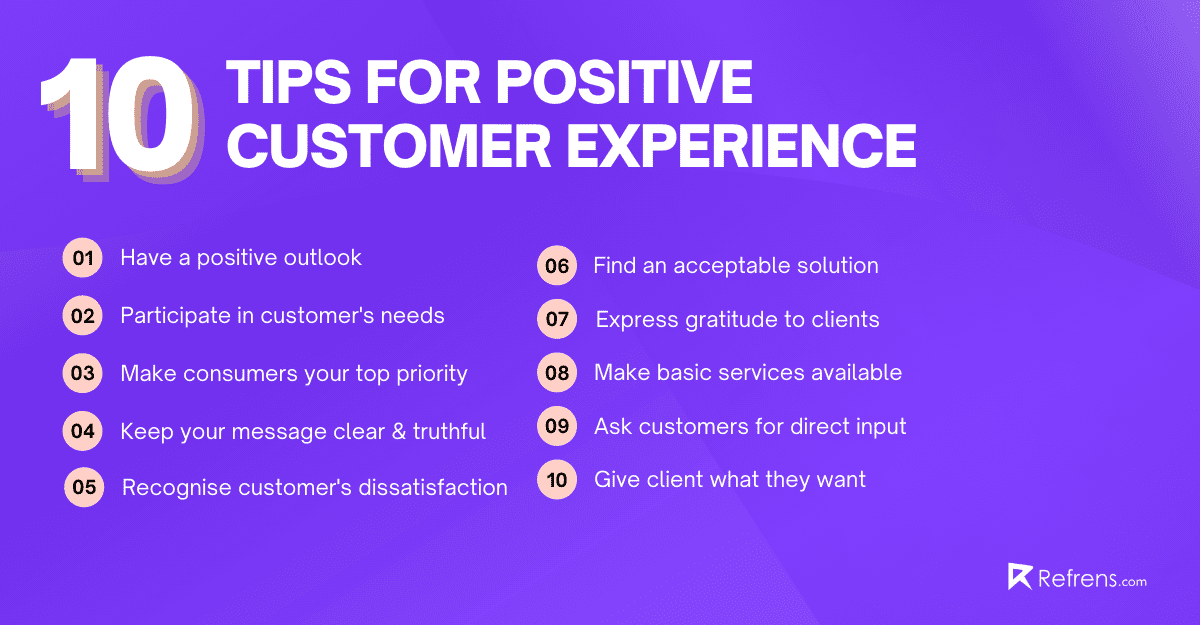Every freelancer tempts to believe that they can do time management and work around their other commitments. This strategy could get you in a lot of trouble.
To be successful as a freelancer, you must do time management the same way that you would if you worked in an office. It’s critical to take your work seriously, so set aside time during the day when you’re most productive.
It could be early in the morning, late at night, or during the traditional 9 to 5. The important is that you have the freedom to choose the optimum time of day for you and set up time management for your day would be must easier.
You have to go through the feast and famine cycle as a freelancer. That is, you do not always have ‘good’ days when everything is going swimmingly, you are happy with your work, your projects are meeting deadlines, and everything is bright and pleasant. You might have tougher days where you feel like you’ve run out of time and everything is spinning around in your head.
What matters most is that you do better time management by establishing a work schedule for yourself. Making a cup of coffee, setting up your computer, shutting the door to your home office, or settling into your favorite seat at the local cafe are all good methods to define your work time. It’s easier to move to a productive mentality when you have a pattern for starting your workday.
If you’re unsure where to work as a freelancer, read this post to learn how working from different locations might boost your productivity.
Let’s look into how you can practice time management as a freelancer in this article below.
How to Manage Your Multiple Projects And Increase Efficiency?
Juggling many assignments at the same time is tough for many freelancers. It makes your time management difficult and chaotic. Different clients, many deadlines, and emails flying back and forth might be perplexing.
You might request to conduct last-minute adjustments for one client while another requests a good proposal for a new project. How do you keep track of all your responsibilities?
You must find the time management method that works best for you, but here are some broad guidelines to help:
- Keep track of your obligations and deadlines with a calendar so you don’t end up with extra bookings. If you’re working on numerous projects such as software project proposals at the same time, make a schedule for when you’ll work on each one. You’ll be able to devote your complete focus to it without being distracted by other duties.
- If you’re working on a daunting major project, such as a software project proposal, break it down into smaller chunks. To make things more manageable, compile a list of all the jobs that need to be completed and assign each one its own date.
- Make use of a project management program. It doesn’t need to be complicated; many freelancers are perfectly content with a simple Excel spreadsheet that lists each work and its associated deadline. A more comprehensive project management tool like Monday.com could help you organize a team through its advanced features.
- Keep track of all of your work emails so that you can double-check deadlines and directions. It’s a good idea to set up a distinct email folder for each client so you can properly file their emails.
- Keep track of your working hours. Even if you aren’t paid by the hour, keeping track of your work time is a useful habit to develop. It allows you to track how much time you’ve spent on each job and compare it to your budget.
- Online file-sharing services like Google Drive, Dropbox, and Microsoft OneDrive are useful for keeping track of projects and sharing completed work with clients. Create a folder for each customer, and if necessary, create subfolders for separate projects.
Be honest with yourself about how much work you can handle. It’s probably time to scale back your commitments and have better time management if you’re feeling overwhelmed by the number of initiatives you’ve accepted.
How to Get the Most Out of Your Working Hours?

When you work as a freelancer, every minute you spend on a task that isn’t billable is a minute you aren’t making money. Making work schedule in Excel, reporting on your progress, responding to client emails, hunting for new business, and managing payments and funds are all examples of this.
The problem is that these jobs are a necessary component of your freelance career. So to improve your time management and run projects cost-effectively, you can check on different tools reviews and RescueTime alternatives, so you can choose which one is best for you.
Other than that, there are also three suggestions for making the most of your time management so that you can be more productive while avoiding administrative duties that eat up your working hours.
Here are three suggestions for making the most of your time management so that you can be more productive while avoiding administrative duties that eat up your working hours.
Take a look at these six smart strategies to increase your freelance productivity.
Organize Your Freelancer Things
- Make use of a filing system
It’s crucial to manage all of your paperwork, including e-receipts, invoices, contracts, release forms, emails, client accounts, tax forms, and business legal documents, in addition to your time management. These should be saved in both physical and digital file systems. Each system should be arranged by year and various folder subdivisions.
Generating invoices, quotation generator, proforma invoices, GST invoice maker, escrow service, payment reminders, receiving international payments, and many other services are all available on the Refrens platform. Check it out and see what kind of service you’re looking for.
- Make your desk clutter-free
By creating a pleasant physical work environment, you can achieve a peaceful and concentrated frame of mind. Clear clutter and give yourself luxuries that help you focus, whether you’re working from home or in a shared workspace.
- Keep an eye on your money
Track your income, expenses, and taxes using numerous spreadsheets in addition to using a file system to manage your accounts. This will aid in your understanding of how you make and spend money.
Organizing your belongings will assist you with time management.
Learn how to manage your finances as a freelancer!
Tips On How To Do Time Management As A Freelancer

Now that we’ve learned how to do time management and things as freelancers, let’s look at how time management may help you produce more efficient and successful work.
You can even begin to think of your spending in terms of how much effort it took you to come up with the money. When you look at a bill, your brain converts the total amount due into the number of hours you worked to pay the remainder.
As a result, time management is crucial for independent contractors. You might as well chuck money out the window if you waste your valuable working hours.
- Make a schedule
Routine makes room for productivity and innovation. Create a morning, evening, and afternoon routine to help you succeed. With practice, you’ll develop an intuitive structure that allows you to concentrate on your task.
As a freelancer, there is no right or wrong way to arrange your day! Just make sure to stick to a regimen that allows you to be more creative and focused. If you’re at your most creative in the morning, tackle these tasks first and leave the more task-oriented stuff, such as emails and money, for later. The most important thing is to keep yourself energized and focused by creating a schedule.
Check out : Schedule Of A Successful Freelancer
- Make a list of your priorities
Making a to-do list is not only fun, but it’s also a wonderful method to stay on top of your daily and weekly tasks. Include self-care things like meal times and workouts and organize them by priority level. Keep a copy of this list with you at all times, whether it’s on paper or on your phone. This will allow you to update it after each task is complete.
- Don’t put it off
Self-imposed deadlines, in particular, can be a fantastic method to hold yourself accountable and avoid procrastinating. Set realistic and timely goals, for example, if you take on a freelance project. Set early deadlines to allow you to complete numerous drafts and receive input from your client before the final product completes.
To fulfill your deadlines, set realistic time limitations for each task and keep track of them. You should also meet with your client on a regular basis to provide status updates, progress, and unexpected obstacles. Office Time, Time Panther, Toggl, or your calendar app are all excellent possibilities.
- Make use of your digital calendar
Unlike a daily to-do list, your calendar aids in the organization of your schedule on a broad and small scale. You may plan out your daily tasks, as well as weekly, monthly, and even annual action plans, here. Of course, it’s also a wonderful location to keep track of appointments, such as birthdays and client outreach reminders. Keep yours up to date and accessible from anywhere. This is one of the best practices for time management.
- Check-in at the end of the day
One of the most important things you can do as a freelancer after a long day of work is to spend 5 minutes thinking and planning for the next day. Make a new list of what you need to do tomorrow based on the progress you’ve achieved today. This will help you stay focused and prepared for the day ahead.
- Make a firm commitment to a good work-life balance
Work-life balance is one of the most crucial things to cultivate as a freelancer. As a freelancer, it can be difficult to find a balance between work and personal wellness, whether you work from home, a coffee shop, or a shared office. So make time away from your computer a priority – a walk, a run, a fast house cleaning, or even running errands can help you re-energize.
- Set S.M.A.R.T. goals
S.M.A.R.T goals if you don’t already know what they are (specific, measurable, actionable, relevant, and time-bound) is an acronym for specific, measurable, actionable, relevant, and time-bound.
Set S.M.A.R.T goals for each new project you start, or even for your own business goals, to help you keep on track. Make sure you have a clear definition of success so you can tell when you’ve met it. These might be short-term or long-term goals as long as they keep you focused on the end goal: to love your freelancing life!
- Develop ability to multitask
Human brains aren’t capable of multitasking in the true sense. You may believe you’re juggling multiple tasks at once, but your brain is simply going back and forth between them.
This method can impair your efficiency and make both jobs take longer than if you tackled them one at a time. Because you have to wear multiple hats as a freelancer, it’s a good idea to plan out your week ahead of time and schedule time for certain duties.
- Make a timetable
The schedules of freelancers are frequently variable. One of the most typical mistakes made by new freelancers is taking advantage of their freedom as an excuse to postpone tasks.
A daily planner app can be an excellent way to manage this flexibility by organizing tasks and setting reminders, making it easier to stay on track. Establishing a clear timetable and sticking to it is the best way to avoid falling behind and maintain effective time management.
It’s simpler to get into the zone when you need to be—and easier to disconnect when it’s time to enjoy the rest of your life—if you plan to work at certain, regular times.
- Take vacation days
And, while you’re planning out your time to enjoy the remainder of your life, don’t forget to leave some time for not working.
Taking time for yourself isn’t only for fun; it’s an important aspect of maintaining a healthy work-life balance. You need time to rest and replenish your batteries in order to be truly productive.
- Make a list
Do you feel like you’re spinning your wheels and not doing much? Try keeping a time diary. Write down what you do and when you do it for a specific length of time, like a day or a week. (Think of it as a food diary, except instead of calories and nutrition, it’s time and activities.)
After the specified time has passed, it should be evident whether you’ve been squandering hours on social media or simply not billing adequately for time spent on a job. You can adjust accordingly in any case.
- Keep in mind that you are in charge of your own time management
As a freelancer, it is your job to perform exactly what you say you will do, to the best of your ability, in order to assist your customer in achieving their objectives. This is something you do for money. Don’t overlook that crucial point, no matter how much you enjoy the task or the client. You should be loyal to both yourself and your company.
When you’re able, it’s always a good idea to meet client requirements. It strengthens the bond between you and encourages trust and confidence. It’s also just the right thing to do.
- Establish boundaries with clients
The ability to set boundaries is the most critical talent any working person possesses, whether they work for a corporation or for themselves. If you need, desire, or deserve more time or money, don’t be afraid to decline a task you don’t have time for, push back against additional work that doesn’t interest you or add to your portfolio, or negotiate for more time or money. You can also make use of a marketing agency project management software to help you streamline tasks and communication with your clients. You can also make use of a marketing agency project management software to help you streamline tasks and communication with your clients
One of the most appealing aspects of the independent lifestyle is that no one can tell you what to do—at least not in the manner that a boss can. Don’t waste it by forgetting that you’re in charge and work on your time management skills.
As a result, if you follow these guidelines, you will undoubtedly become a pro at time management as a freelancer.
Best Time Management Tracking Tools For Freelancers

To improve your time management use the tools mentioned below. With the help of these best time-tracking apps, you can focus and increase your efficiency as a freelancer.
Conclusion
This time management guide should have exposed you to all of the greatest methods for focusing and completing things by the deadlines you set with your clients.
Moreover, One of the most important aspects of being a freelancer is time management, which essentially boils down to staying on top of your deadlines using a variety of free tools and apps.
Being a sole proprietor is a difficult task. Unlike working as an employee, a freelancer is responsible for a variety of tasks that are indirect to the services you provide. You expect to provide a complete service package to your clients.
You must be disciplined and know how to do time management if you want to make a successful career as a freelancer.
Otherwise, you may experience a lot of stress as a result of missed deadlines and a lack of productivity.
You must actually discover what works best for you, which may require a lot of trial and error when you first begin! I hope this list provided you with some useful suggestions for your freelance business.


















